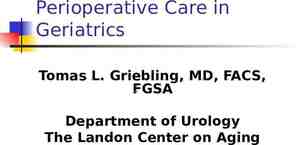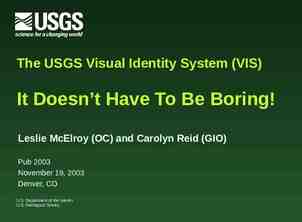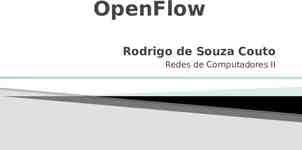A review of the FMCSA Visor Cards Created for law enforcement as
17 Slides5.75 MB

A review of the FMCSA Visor Cards Created for law enforcement as a quick reference tool to help collect the data most fundamental to the FMCSA. The five visor cards correspond to five lessons of a state-specific FMCSA Crash Data Training Class. Address: selection criteria*, proper motor carrier identification, and key vehicle and driver specific data. This brief presentation demonstrates the use of the cards and shows examples of the training class using the State of Florida’s crash report. *It should be recognized that the FMCSA collects commercial and some non-commercial vehicles like Government trucks and buses and Rental Trucks (even for private use). So these vehicles should also have ALL the related motor carrier sections filled in.

FMCSA Visor Card What is Reported to the FMCSA 2

The FMCSA collects the following types of motor vehicles: Vehicle Qualification Example Vehicles Any Truck with a gross vehicle (or combination) weight rating greater than 10,000 lbs. Any motor vehicle with seating to transport 9 or more people, including the driver. Any motor vehicle displaying a Hazardous Materials (HM) placard. Commercial Medium or Heavy Truck/ Trailer/ Combination Units Government Trucks Rental Trucks (also for private use) Commercial busses used for intercity transportation or charter service Government-owned school buses, city transit buses, prisoner transport Shuttle buses or large vans used by airports, hotels, churchs, etc. Limo services Medium / Heavy Trucks & Tractors Vehicles less than 10,000 lbs Includes motorcycles 3

Sample Commercial Trucks Medium / Heavy Trucks Truck / Trailers Tractor / semi-Trailer(s) 4

Sample Government and Rental Trucks Emergency Services Rental Trucks (even private use) Government Trucks 5

Sample Busses (9 or more seats, incl. driver) Government: School and City Transits Motor coach, Tour, Intercity services Shuttle and Limo services 6

Sample Hazardous Materials Placards Government or Commercial Vehicles Smaller vehicles less than 10,000 lbs. 7

FMCSA Visor Card How to find the responsible Motor Carrier 8

FL HSMV Instruction Manual: Instruction Manual for Motor Carrier: This space is used to identify the name of the motor carrier. A motor carrier is: “the business entity, individual, partnership, corporation, or religious organization responsible for the transportation of goods, property or people.” Enter the name of the motor carrier in the space provided. If the motor carrier is a person, enter the first name, middle initial and last name. If the motor carrier is a company or corporation, enter the full legal name of the company or corporation. Enter UK in the space provided if unknown. If not applicable, leave blank. For Government vehicles: Enter the agency (or abbreviation). For private use of a rental truck: Enter UK in the space provided. 9

Identifying Motor Carriers and USDOT # The side of the truck may contain motor carrier information but it is not necessarily the motor carrier responsible for the load. As well, the registered vehicle owner is not necessarily the motor carrier responsible for the load. Determine the proper motor carrier by: 1. Interviewing the driver 2. Reviewing any documentation they can provide including: a. Lease agreements b. Shipping papers c. Driver’s log d. Cab Card or IRP 10

FMCSA Visor Card Vehicle Configuration & Cargo Body Type 11

Vehicle Configuration Single Unit vs Cannot Classify vs Other FL HMSV Uniform Crash Form: Single Unit Trucks (also called Straight Trucks) should be coded according to their axle (ie: Single Unit Truck 2 axle or Single Unit Truck 3 or more axles. These are typically commercial, government or emergency services vehicles shown in previous slides. Vehicles which are not on a single unit frame, or heavy machinery, farm equipment or off-road vehicles may be involved in a traffic accident if operating on a roadway. If these are greater than 10,000 lbs then code to “Truck more than 10,000 lbs, cannot classify. Otherwise code to “Other”. (see next slide for examples).

Vehicle Configuration Cannot Classify ( 10K lbs) vs Other (10K lbs or less) 13

Commercial Driver’s License (CDL) 14

Does FMCSA want crashes where the driver of the vehicle does not have a Commercial Driver’s License (CDL)? YES! FMCSA does not collect based on CDL licensing but the vehicle size, seating or HM placard. A driver of a truck between 10,001 to 26,000 pounds or a bus with 9 to 15 seats is not required to have a CDL. However, crashes involving these vehicles meet FMCSA’s selection criteria. FL HSMV Uniform Crash Report: CDL A, B, C Regular operator’s license (even if out of state) 15

FMCSA Visor Card Hazardous Materials Reporting 16

FL HSMV Uniform Crash Report HM 1 digit Class and 4 digit UN number Y 1203 3 HM 2 digit Class and Division, and 4 digit UN number Y 1942 5 Shipping papers: 1 digit Class and 4 digit UN number. Y 1263 3 17






